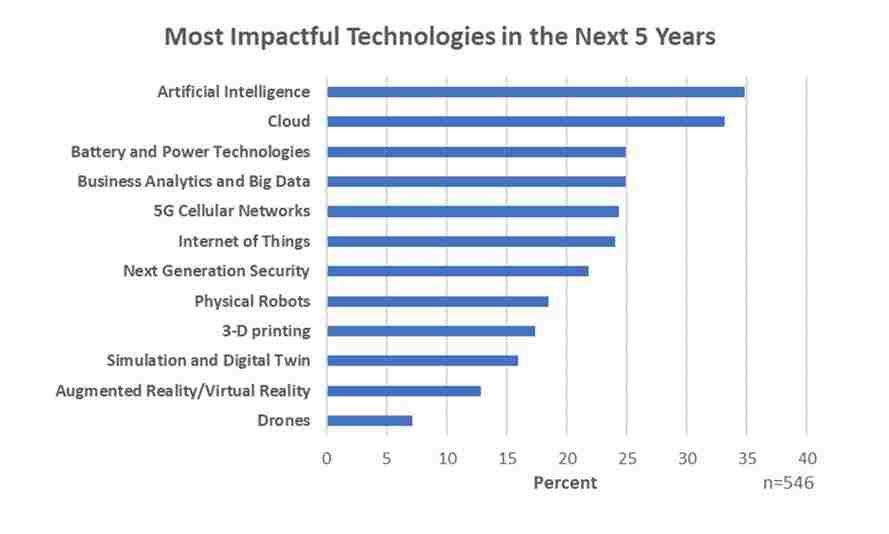

Artificial intelligence (AI) has the potential to transform the manufacturing industry by enabling greater efficiency, higher quality, and reduced costs. One of the key benefits of AI is its ability to analyze large amounts of data generated by sensors, machines, and other sources to identify patterns, anomalies, and insights that can be used to optimize processes and improve performance. For instance, AI can be used to predict equipment failures, detect defects in manufacturing lines, and optimize supply chain logistics.
Advances in AI could not have come at a better time. Industrial manufacturing companies are constantly faced with a multitude of challenges, both current and future. These challenges come from a variety of sources, ranging from geopolitical, economics, climate, energy, etc. As a result, manufacturers are increasingly focused on improving their business operations to ensure their short and long term viability.
However, implementing AI in manufacturing can be challenging, if not daunting, as it requires an understanding of business objectives and the integration of AI with existing processes and systems. Implementing AI requires the collaboration and coordination of multiple stakeholders with diverse perspectives, expertise, and objectives. Ingesting and interpretating vast amounts of the data correctly can become opaque. Hence it’s not surprising that many AI projects fail.
ARC recently conducted an extensive survey of manufacturers, and 546 respondents expect that artificial intelligence and cloud will be the most impactful technologies in the next five years. If that is the case, then why do so many manufacturers also share stories of the collapse of their AI projects? For most companies, even the innovators, it is typically overwhelming to determine an effective starting point for any digital transformation project, including implementing AI. Without clear ideas on how to develop strong analytical digital competencies, which is what ARC refers to as “digital wisdom,” companies often experience the collapse of their AI pilots and projects, leading to the internal perception that these projects are a wasted investment.

Industrial manufacturing companies face many challenges and will continue to do so in the future. Whether it is political unrest, climate disruption, pandemics, or global macroeconomic uncertainty, manufacturers are concerned about their operational resilience, agility, and efficiencies. At the same time, manufacturers face pain points and cost drivers, such as energy costs, supply chain disruptions, materials shortages, order backlogs, rising prices, workforce dynamics, sustainability requirements, and more.
Factories around the world have been digitizing their operations since the emergence of the internet. Nowadays, terabytes of data are being processed by almost every device on the factory floor, providing organizations with more information than they can handle. However, a lack of resources prevents many companies from utilizing this data to decrease expenses and enhance productivity. Artificial intelligence is required to accomplish this goal.
ARC Advisory Group clients can view the complete report at ARC Client Portal
If you would like to buy this report or obtain information about how to become a client, please Contact Us
Keywords: Artificial Intelligence, AI, Analytics, Digital Transformation, Industrial Manufacturing, ARC Advisory Group.

